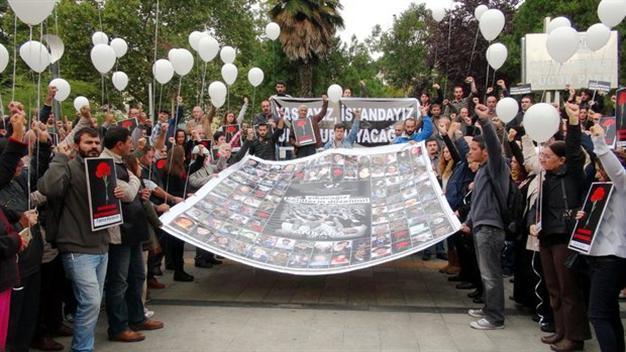Ankara blast attack death toll rises to 103
ANKARA - Anadolu Agency

DHA photo
The death toll from last month’s Ankara bombing has risen to 103, after one of the wounded victims died, judicial sources said Nov. 18. No further details were available. It is not known how many other victims are still in critical condition. A week after the Oct. 10 attack, 150 remained in hospital.The attack saw two suicide bombers linked to the Islamic State of Iraq and the Levant (ISIL) target a large group of people marching for peace and democracy outside the capital’s main train station.
The incident was the deadliest terror attack in modern Turkish history and came as the country was preparing for a general election.
One of the suicide bombers in the Ankara twin blasts was identified as Yunus Emre Alagöz, an ISIL militant, according to a written statement released by the Ankara Chief Public Prosecutor’s Office, the prosecutor’s office heading the investigation into the deadly blasts.
Identified by DNA tests, Alagöz is the brother of another ISIL militant, Şeyh Abdurrahman Alagöz, the perpetrator of the Suruç bombing that killed 33 and wounded more than 100 in late July in the southeastern province of Şanlıurfa.
About three weeks after the deadly Suruç bombing attack, 30 ready-to-use suicide vests were seized in the country in anti-terror operations against ISIL, Turkish officials told Hürriyet Daily News in mid-August, speaking on condition of anonymity.
The Alagöz brothers have been revealed to have close links to ISIL, as Şeyh Abdurrahman Alagöz was reported to have been probed last year by the chief public prosecutor’s office in the eastern province of Adıyaman over links to al-Qaeda along with 18 other suspects, news website Radikal reported on Oct. 16.
All of the 19 suspects, at the time, were reported to be implicated in militant recruiting activities and were based in a militant camp in Adıyaman. The town of Adıyaman has become notorious in Turkey as a site of radicalism among young people from low-income levels.
















